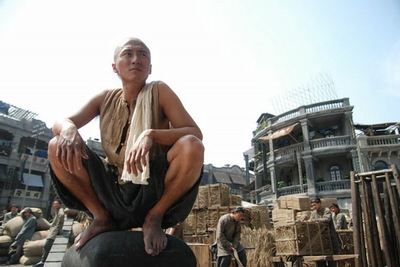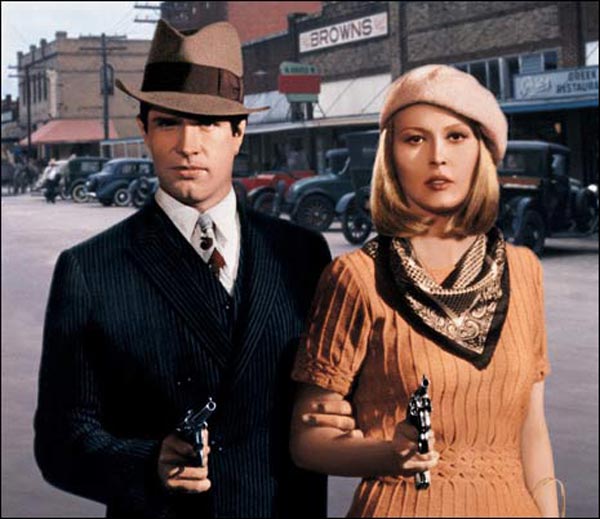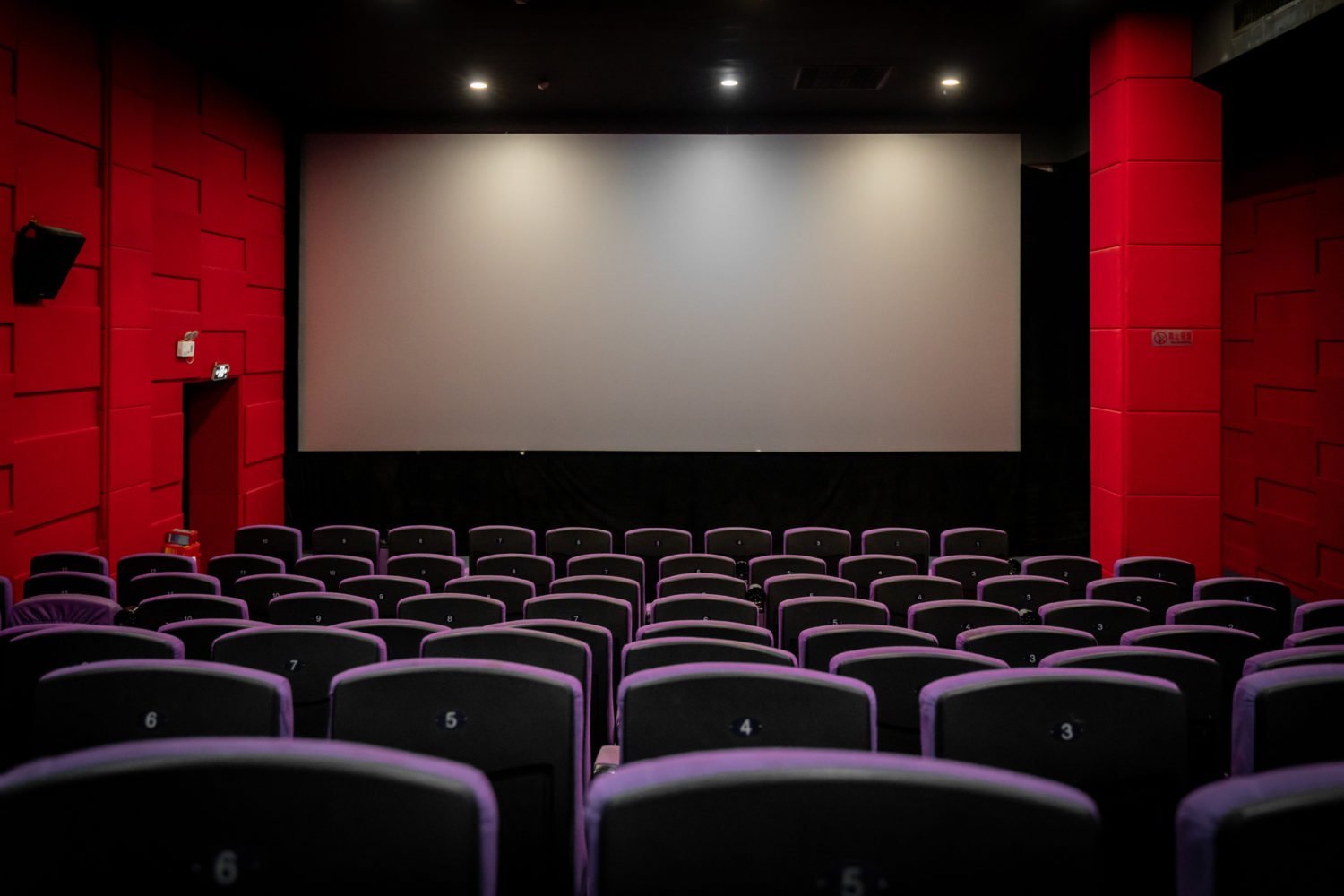Bonnie and Clyde follows one of Hollywood's most infamous couples, Bonnie Parker and Clyde Barrow.
Bonnie and Clyde
Following the death of director Arthur Penn last year, the AFI is putting on a brief three-film retrospective of his films, starting with his greatest of them all: 1967’s Bonnie and Clyde, the film that helped change the face of Hollywood and usher in a new golden age of American cinema. The film was written by a pair of Esquire magazine employees who fell in love with the films of the French New Wave when those films began playing in New York City throughout the 1960s; the first-time screenwriters even managed to get New Wave legends Francois Truffaut and Jean-Luc Godard interested in directing the famous story of Bonnie Parker and Clyde Barrow, the couple who made headlines on a lengthy spree of bank robberies in the early 1930s.
When Penn took over the project, he was also enamored of the fast and loose style of the New Wave, and those visual ideas, along with the movement’s fascination with exploring the subtext beneath pulp fiction violence, survived into the final product. Nothing about the production was easy—from getting it off the ground to getting a studio behind marketing it—even with a star like Warren Beatty on board as star and producer. But the film tapped into the same youth market as another boundary-pushing hit film from the same year, The Graduate, and eventually survived both studio disinterest and an extremely divided reaction from critics to become a huge success. Now the film is an undeniable classic. For more about the making of the film, as well as its place in the sea change that took over Hollywood in the years that followed, check out Mark Harris’s excellent Pictures at a Revolution, a book that takes an in-depth look at the five films nominated for Best Picture Oscars in 1968.
Also on tap this weekend in the retrospective, Penn’s 1970 Dustin Hoffman-starring western, Little Big Man.
View the trailer. Bonnie and Clyde screens Friday, Monday, and Tuesday, Little Big Man Saturday and Tuesday at the AFI. See their schedule for complete listings.
Cameraman: The Life and Work of Jack Cardiff
With a career that spanned almost 90 of the 94 years that he was alive, Jack Cardiff was a near-constant presence in the first century of film’s history. Starting as a child actor in silent films, he eventually became a camera operator and then a cinematographer, eventually acknowledged as one of the greatest who ever lived. He is almost without question the best and most innovative cinematographer to work in the days of Technicolor. His work on the sumptuous look of Powell & Pressburger’s 1940s classic works from The Life and Death of Colonel Blimp to The Red Shoes alone would probably seal that title. Cameraman, the documentary about his life and career (mostly the latter), took nearly 20 years to put together, and features interviews with many Hollywood luminaries, including Martin Scorsese, Lauren Bacall, and Kirk Douglas. It also features, as should be the case in any film about a great cinematographer, no shortage of examples of his great work. The documentary features samples ranging from his work on acknowledged classics, such as The African Queen, as well as films with a bit less prestige that he still made look great, such as Rambo: First Blood Part II.
View the trailer. Opens Friday at West End Cinema.

Bodyguards and Assassins
The Freer opens it’s annual Made in Hong Kong Film Festival this weekend with two chances to see the latest film from prolific Hong Kong actor and director Teddy Chan. Bodyguards and Assassins is set in early 20th century Hong Kong, while it was still under British rule, as a revolutionary organizes a meeting there to launch a coup to overthrow the ruling Qing dynasty, even as the dynasty’s head has sent assassins there to take him out. Featuring an impressive cast of martial arts actors including Donnie Yen in the lead role, expect plenty of action alongside the historical and political drama. The festival as a whole continues on weekends through the third week of August.
View the trailer. Friday at 7 p.m. and Sunday at 2 p.m. at the Freer. Free.
Vincent Wants to Sea
This German film centers on an institutionalized man with Tourette’s Syndrome, Vincent Gellner, who sets out along with his obsessive-compulsive roommate and an anorexic young woman, and on a quest to dump the ashes of his mother on the coast of Italy. That sounds like the setup for a quirk (and profanity)-filled road movie, as the three drive their therapist’s car through Europe, each dealing with the problems that led them to the institution to begin with.
View the trailer. Opens Friday at E Street Cinema.
Ciné-Concert: Poetry in Motion—The Scientific Short
As anyone who has seen the hypnotic films of Jean Painlevé can attest, modern HD nature films, while certainly stunning in their vivid recreation of reality, still often can’t compare with the visual lyricism of some of the earliest silent science films. This series of 15 French shorts, precursors to Painlevé’s work and nature films as we know them, were made between 1910 and 1920, and turn early film technology on plants, insects, and various other living things. The films are presented as one of the National Gallery’s frequent “Ciné-Concerts,” which feature live music to accompany silent films. For these science films, pianist Andrew Simpson will accompany, and film conservator Caroline Patte will also be on hand to talk about the films. Patte, along Eric Le Roy, selected the films for this program and for the museum’s full “From the Vault” series presenting early French film.
Saturday at 2:30 p.m. at the National Gallery of Art. Free.
DVD/Blu-ray Pick of the Week: Das Boot
Wolfgang Petersen would go on to become a big-budget Hollywood director of political thrillers and action epics, from In the Line of Fire to The Perect Storm, and it was this film that gave him the clout to make the leap from German cinema to the US. Probably the definitive submarine movie, Das Boot is portrayed with moves deftly through the tight corridors of a German U-boat during World War II, as the craft and its crew deal with the long hours of tedium in claustrophobic spaces, punctuated by short bursts of action when they are called to action. The newly restored two-disc Blu-ray set includes both the original, 2½ hour theatrical cut and the 3½ hour director’s cut, though not the nearly five-hour full cut that aired as a series on German television.
Special Features: Commentary from Petersen on the longer version of the film and another three hours of video supplements and making-of featurettes.
View the trailer:
Subscribe to Washingtonian
Follow Washingtonian on Twitter
More>> After Hours Blog | Arts & Events | Happy Hour Finder | Calendar of Events
















